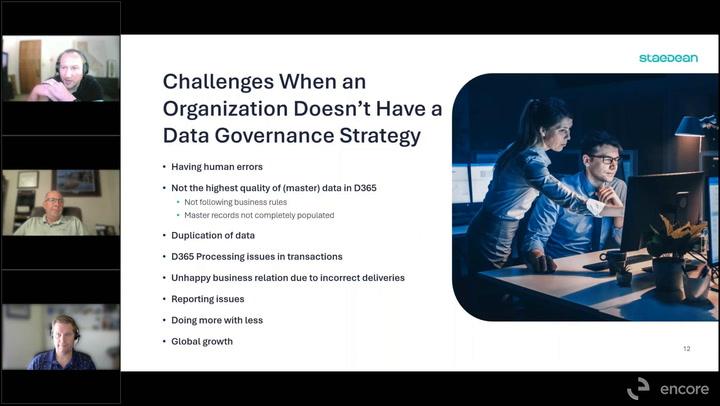Challenges for Manufacturers Without a Data Governance Strategy

FREE Membership Required to View Full Content:
Joining MSDynamicsWorld.com gives you free, unlimited access to news, analysis, white papers, case studies, product brochures, and more. You can also receive periodic email newsletters with the latest relevant articles and content updates.
Learn more about us here
Integrating data into PLM and ERP systems such as Dynamics 365 Finance & Operations as part of a broader data governance strategy is important. There is a common issue of inconsistent reports from different departments, emphasizing the need for a single source of truth. This involves establishing a data warehouse and analytics model to ensure everyone is using the same data for reporting and analysis. The challenge lies in the existence of various systems, such as engineers using CAD and spreadsheets, and finance using separate systems, leading to discrepancies in data.
Data governance issues often start at the data migration stage, with problems like data duplication and poor data quality. A robust data governance strategy to manage data across multiple legal entities and regions is vital, ensuring consistent and accurate information. This is crucial for maintaining product quality and meeting customer expectations.
